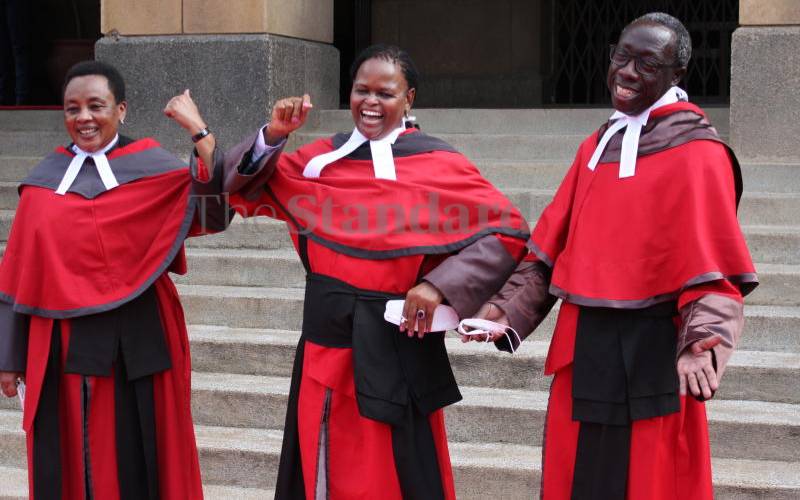×
The Standard e-Paper
Stay Informed, Even Offline

Hopefully the swearing-in of Chief Justice Martha Koome and Court of Appeal judge William Ouko at State House may have de-escalated tensions fuelled by the President’s Cabinet ministers earlier in the week.
What can the Executive and Judiciary do to reboot three years of toxicity, contempt and abuse?







